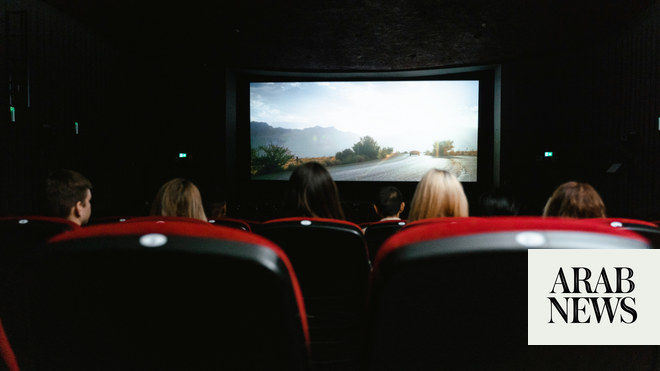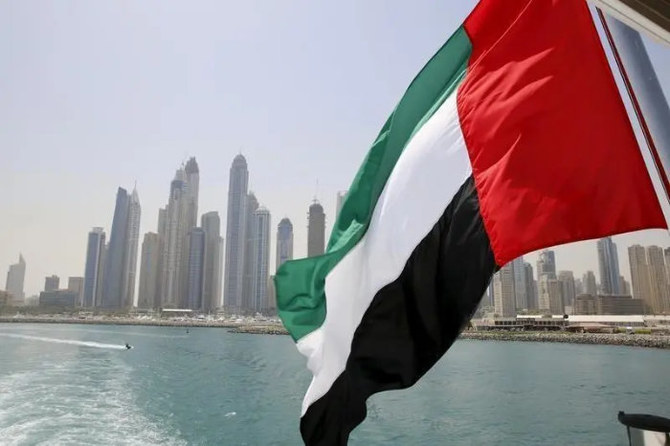
How Middle East cinema is captivating audiences across the region and beyond
DUBAI: Cinema has been a part of Arab culture for many years with the first film coming out in the 1920s. The Middle East’s exotic locations, distinctive stories and penchant for fashion make for captivating films that have enthralled regional audiences.
Increasingly, films from the Arab world are casting a wider net as they make their debut on global streaming services.
The scenic landscape of the region has made a great setting for several productions — such as the 2016 TV show “Secret of the Nile,” a remake of the 2011 Spanish drama “Gran Hotel,” which is set in the picturesque city of Aswan against the backdrop of the Old Cataract Hotel, a historic British colonial-era hotel built in 1899 overlooking the river Nile.
More recently, Saudi Arabia has attracted several international productions — including “Kandahar,” starring Gerard Butler and filmed extensively in the heritage city of AlUla; Rupert Wyatt’s historical epic “Desert Warrior,” shot in Neom, and the Russo Brothers’ crime drama “Cherry,” shot in AlUla and Riyadh.
Movies from the region have also evolved to portray multilayered characters through more authentic storytelling. Netflix’s Arabic original “Finding Ola” is a personal exploration of one woman’s journey as she reinvents her life after a divorce.
Similarly, Kuwaiti show “The Exchange” transports audiences to 1980s Kuwait, where two female protagonists carve out careers in the male-dominated world of finance, while “Cairo Class” follows a group of women who leave Kuwait to attend university in Cairo on their journey of self-discovery.
The proliferation of streaming services has increased audiences’ appetite for local quality content with streaming subscriptions forecast to reach 21.52 million across 13 Arab countries by 2027 from just 9.49 million in 2021, according to a study by Digital TV Research.
Consequently, global and regional streaming players are investing more in original content.
Last year, MBC and its flagship streaming platform Shahid launched the Arabic version of hit series “The Office” and “The Devil’s Promise,” both produced by MBC Studios.
OSN, too, has been investing heavily in original content with shows such as “A’adet Regala,” the comical food reality TV show “Yalla Neta’asha,” the Syrian war drama “No Man’s Land” in partnership with Fremantle, and the upcoming stand-up comedy show “Stand Up! Ya Arab!”
The creation of local content is accompanied by the need to develop local talent. In addition to school-based programs, organizations and governments are investing in upskilling talent to build a robust industry.
Netflix, for example, has held several training sessions in the region with the most recent one being a partnership with Studio Production Training, a Saudi-based production training studio, and the University of Southern California’s School of Cinematic Arts to upskill 15 aspiring Saudi talents in the process of creating world-class scripts and developing them into outstanding TV shows.
It has also held programs such as “Below the Line KSA,” in collaboration with Studio Production Training, an initiative that aims to establish and develop an infrastructure of so-called below-the-line talent — behind-the-scenes crew members such as assistant directors, production designers and managers, art directors, prop masters and set builders; and “TV Writers’ Lab 6x6,” a six-week program in partnership with the National Creative Industries Group in Kuwait.
“Ultimately, we want to use our scale and influence to provide Arab talent and filmmakers with a platform to gain fans globally,” Nuha El-Tayeb, director of content acquisitions at Netflix MENA, told Arab News in a separate interview.
“We want to be a meaningful part of the creative communities in the region and that means developing the talent pipeline and giving new voices a chance to be heard,” she said.
In addition to talent, the region also needs to upgrade its infrastructure to include state-of-the-art film studios and technology. Several cities are working toward becoming thriving hubs for the Arab film industry.
Saudi Arabia, for example, has been launching a flurry of film-related projects that are making a global mark. Film AlUla, the Royal Commission for AlUla’s film agency, is establishing a world-class, fully-equipped studio complex covering up to 30,000 sq m.
Last month, Film AlUla hosted a ten-day workshop, in partnership with the UK-based Creative Media Skills Institute, to train 25 local trainees from AlUla to pursue careers in production, assistant directing, and the art, locations, costume, make-up and hair departments.
The Kingdom’s Red Sea Fund has also committed to funding 100 film projects, with grants reaching $14 million.
Last year, the Saudi Film Commission launched a grant scheme, the Daw funding program, dedicated to supporting local productions and talent.
“Daw is part of our continued efforts to encourage Saudi filmmakers and production companies to express their creativity and help us grow the Saudi film industry,” said Saudi Film Commission CEO Abdullah Al-Eyaf.
In May 2022, the Saudi Film Commission also announced an incentive program offering financial refunds of up to 40 percent for local and international producers shooting in the Kingdom.
The film industry in emerging markets has seen growth in recent times challenging Hollywood’s dominance. This year’s Oscars are a testament to that with “Everything Everywhere All at Once,” starring Michelle Yeoh, Ke Huy Quan, and Stephanie Hsu, winning big.
India celebrated a historic double win at the Oscars after the breakout hit “Naatu Naatu” from “RRR” won best original song and “The Elephant Whisperers” was named best short documentary.
“I am sure in time to come this achievement at the Oscars will inspire more people to do good work in regional language,” Narendra Pulloor, a senior journalist based in India, told Arab News in a separate interview. “Now they know that language is not a barrier to achieve international fame.”
Just like Asia, the Arab world is now set to propel its age-old tradition of storytelling onto the global stage.












